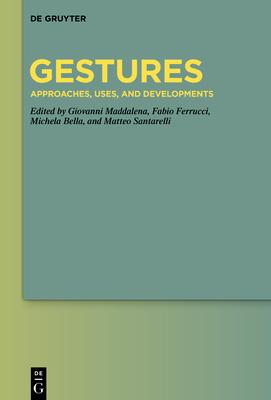Over the past few years, scientists and philosophers have discussed the concept of gesture as promising to overcome hyper-intellectualist conceptions of human beings. Its ascendancy reaffirmed the importance of the pragmatic, relational dimension in human experience and cognitive processes.
Many questions arise when we focus on the cognitive role of gestures, especially in the new cultural landscape shaped by the digital revolution. Does the idea of gestures highlight the preeminence of bodily experiences? Does it lead to the thinning of the distinction between humans and nonhuman animals? Do gestures help us rethink the allegedly higher human capacities in an antireductionist vein? Do gestures involve reasoning? Are they purely external actions? Do they serve to communicate, or is all communication a form of gesture? What kinds of social relations are involved in the concept of gesture?
According to a multidisciplinary orientation, the book inquiries into the possibilities and issues opened up by attending to a philosophy of gestures in philosophy, sociology, psychology, anthropology, and communication studies. Given the current centrality of gestures, the general aim of the book is to reconsider the meaning of "gestures" and try to answer old and new questions.
